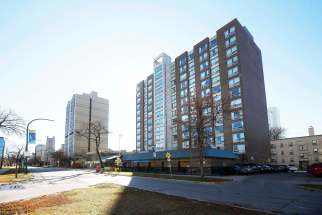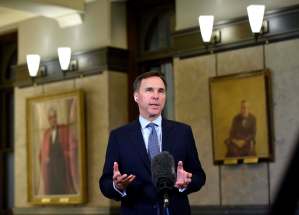Drivers should be revved for possible insurance-rate cut
Read this article for free:
or
Already have an account? Log in here »
To continue reading, please subscribe:
Monthly Digital Subscription
$0 for the first 4 weeks*
- Enjoy unlimited reading on winnipegfreepress.com
- Read the E-Edition, our digital replica newspaper
- Access News Break, our award-winning app
- Play interactive puzzles
*No charge for 4 weeks then price increases to the regular rate of $19.00 plus GST every four weeks. Offer available to new and qualified returning subscribers only. Cancel any time.
Monthly Digital Subscription
$4.75/week*
- Enjoy unlimited reading on winnipegfreepress.com
- Read the E-Edition, our digital replica newspaper
- Access News Break, our award-winning app
- Play interactive puzzles
*Billed as $19 plus GST every four weeks. Cancel any time.
To continue reading, please subscribe:
Add Free Press access to your Brandon Sun subscription for only an additional
$1 for the first 4 weeks*
*Your next subscription payment will increase by $1.00 and you will be charged $16.99 plus GST for four weeks. After four weeks, your payment will increase to $23.99 plus GST every four weeks.
Read unlimited articles for free today:
or
Already have an account? Log in here »
Hey there, time traveller!
This article was published 19/10/2020 (1882 days ago), so information in it may no longer be current.
Manitoba drivers could save about $110 a year on car insurance next year if an application by the province’s public auto insurer for an historic rate cut gets the green light.
A hearing into Manitoba Public Insurance’s application to slash rates by 8.8 per cent began Monday at the Public Utilities Board.
“The Consumers Association of Canada (in) Manitoba is pleased that after eight per cent in cumulative rate increases over the past four years, hard-pressed Manitoba consumers can expect a significant rate reduction,” the association’s legal counsel, Byron Williams, said on Day 1 of the three-week hearing.
A decision is expected in December, which, if approved, would see the average passenger-vehicle owner paying about $111 less in premiums next year.
In 2019-20, Manitoba Public Insurance recorded net earnings of $180.2 million — $21 million more than the previous year, and its second-highest profit ever. Its annual report for the year ended March 31 credited low claims costs, sound management and investment decisions for its financial success.
The increase in profits last year followed by a decrease in insurance claims since the start of the pandemic led to MPI and the provincial government in April announcing customer rebates totalling $110 million — roughly 11 per cent of what policyholders had paid in the past year in premiums.
Rates being set too high in recent years helped boost MPI profits, Williams said. The Consumers Association of Canada is asking the PUB whether further rate relief should be offered to Manitoba consumers.
In its original rate application to the PUB, MPI was seeking a 10.5 per cent reduction. It pulled back earlier this month, instead proposing an 8.8 per cent cut when assumed investment returns were lower than expected due to the pandemic.
An MPI official said the insurer doesn’t want to overplay its hand and make too drastic a cut.
“The trends are now normalizing,” MPI lead counsel Steve Scarfone told the PUB. “MPI has to be careful to avoid a knee-jerk reaction to the pandemic,” he said. “It would be foolish to forecast on a claims history where claims are down 50 per cent when people were staying home.”

The association representing consumers will also be asking about Project Nova — MPI’s mammoth information technology project that aims to move its services online. The public insurer appears to be having “material challenges” with its business case, with an unexpected $12 million in additional costs and potential risks to key benefits, Williams said.
But the pandemic has highlighted the need for MPI to be online, Scarfone told the hearing.
“MPI customers are no longer willing to accept services that are not online,” he testified.
The corporation has said it could save millions of dollars in broker fees if its products were available for purchase online. Brokers, who stand to lose the most once there is greater access to MPI online, will also testify at the hearings.
Another concern of the consumers association is that lowest risk-Manitoba drivers and vehicle owners appear to be paying substantially more in premiums than is justified by the risk they bring to the system, Williams said. So, too, is the Coalition of Manitoba Motorcycle Groups, representing the only drivers facing a rate increase in the application. It has intervener status at the PUB hearing.
“Car owners and motorcycle owners transfer ownership to other people with better driving records to avoid high rates,” motorcycle coalition president Doug Houghton said in an interview.
The MPI general rate application would jack up motorcycle insurance rates by 4.7 per cent while lowering private passenger rates by 9.4 per cent. Motorcycle rates were bumped up by 5.1 per cent just last year, said Houghton. He’s been riding for more than 50 years, and notes safety training and awareness have made it safer than ever.
“Why is it that, in spite of motorcycles declining accident frequency, motorcycle premiums are increasing again at a much greater rate than automobiles?” he said.
Meanwhile, the Taxi Coalition, which also has intervener status at the hearing, said it wants MPI to level the playing field for passenger vehicle-for-hire operators like Uber. It wants rates that more reasonably reflect the cost to provide coverage to the ride-sharing app drivers.
Right now, those drivers must purchase vehicle-for-hire insurance, which has a number of options available, and four “time bands” for which they pay extra. If a vehicle owner chooses all four time bands, they will pay about $300 more in addition to their basic Autopac premium, said MPI spokesman Brian Smiley. Taxicabs pay close $10,000 a year on average.
“There’s a significant difference between taxi and passenger vehicle-for-hire rates,” Taxi Coalition counsel Antoine Hacault told the PUB.
“Taxis do pay more in premiums but justifiably so,” said MPI’s lead counsel Scarfone, given their usage and claims.
Public vehicles, meanwhile, would see a 3.7 per cent rate reduction if MPI’s application is approved by the PUB. For the City of Winnipeg, which pays $2.4 million to insure its fleet, that works out to an $88,800 saving.
“MPI has to be careful to avoid a knee-jerk reaction to the pandemic. It would be foolish to forecast on a claims history where claims are down 50 per cent when people were staying home.”
– MPI lead counsel Steve Scarfone
The application for the proposed rate decrease wasn’t cheered by everyone. The public insurer isn’t paying enough for repairing vehicles, industry members told the hearing Monday.
The Automotive Trades Association Manitoba told the PUB that what MPI pays for repairs isn’t keeping pace with the rising cost of paint and materials. It said that 20 per cent of auto repair businesses are not profitable in Manitoba.
MPI’s estimating policy isn’t letting shops make a reasonable net profit, it said.
The Manitoba Motor Dealers Association said MPI’s increasing use of alternate, less expensive parts rather than those of original equipment manufacturers may be putting people at risk.
“Are we pursuing cost containment at the expense of consumer safety?” Scott Wideman, Volkswagen Group Canada Inc.’s collision program manager, asked the PUB.
carol.sanders@freepress.mb.ca

Our newsroom depends on a growing audience of readers to power our journalism. If you are not a paid reader, please consider becoming a subscriber.
Our newsroom depends on its audience of readers to power our journalism. Thank you for your support.
History
Updated on Monday, October 19, 2020 11:23 PM CDT: Fixes multiple typos




